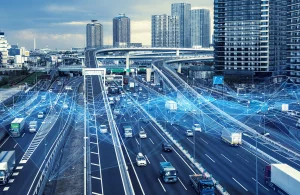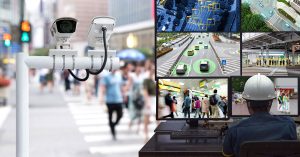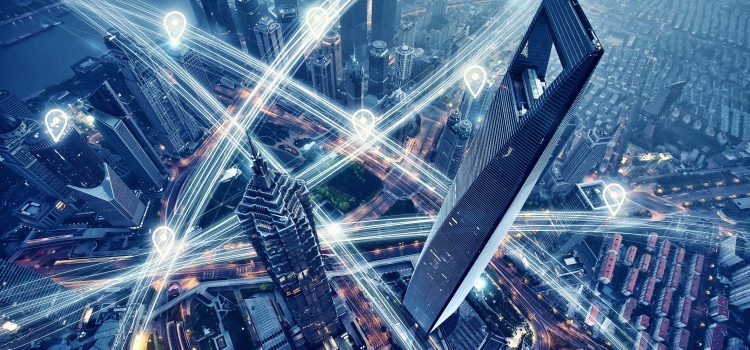
Introduction to Smart Cities: A New Urban Experience:

In the evolving landscape of urban development, technology has emerged as a transformative force, reshaping urban living to enhance efficiency and elevate the quality of life. The concept of smart cities represents a groundbreaking integration of technology with the facets of urban living, aiming for sustainable development that benefits all. As we delve into this new urban experience, it becomes evident that smart cities are not merely about the deployment of advanced technologies but about creating a harmonious environment where technology and urban life coalesce to foster a sustainable, efficient, and more livable future for its inhabitants.
The Role of IoT in Enhancing Urban Infrastructure:
The integration of technology with urban infrastructure is revolutionizing city living conditions, offering a glimpse into the future of urban development. At the heart of this transformation is the Internet of Things (IoT), which elevates urban living by enhancing connectivity and accessibility. Through IoT, cities become more responsive, adapting to the needs of their residents in real-time. From smart lighting that adjusts based on natural light conditions to traffic systems that optimize flow based on real-time data, IoT is a testament to how technology can seamlessly integrate into the urban fabric, creating a more efficient and accessible urban environment.
Big Data and Analytics: Understanding Urban Dynamics:
The advent of Big Data and analytics has revolutionized urban living by providing insights that were previously unimaginable. In smart cities, technology leverages predictive analytics to anticipate and mitigate urban challenges, from traffic congestion to energy distribution. This profound understanding of urban dynamics allows city planners and policymakers to make informed decisions that enhance the livability, sustainability, and resilience of urban areas. Big Data not only offers a deeper understanding of how cities function but also empowers them to become more adaptive and responsive to the needs and challenges of urban living.
Sustainable Energy Solutions for Eco-friendly Living:

Integrating renewable energy technology is pivotal in enhancing urban life sustainability. Smart grids, a key component of smart cities, optimize energy use, ensuring that renewable resources are maximized while reducing waste and emissions. This transition towards more sustainable energy solutions not only supports eco-friendly living but also ensures that cities can sustain their energy needs efficiently and reliably. By harnessing technology to improve energy distribution and consumption, smart cities are setting the stage for a future where urban living is in harmony with the environment.
Smart Transportation Systems for Efficient Commuting:
Technology has revolutionized commuting, making it an integral part of the sustainable urban living narrative. Smart transportation systems stand out as a cornerstone of this transformation, offering efficient, eco-friendly alternatives to traditional modes of transport. These systems leverage real-time data, AI, and IoT to optimize routes, reduce congestion, and improve air quality, making urban commuting not just more efficient but also more enjoyable. As cities continue to grow, the adoption of smart transportation systems will be critical in ensuring that urban mobility remains fluid, accessible, and sustainable.
Enhanced Public Services Through Digital Platforms:
The revolution in urban living extends to the provision of public services, which have been significantly enhanced through the adoption of digital platforms. Smart cities embody the fusion of technology and urban living, where services such as healthcare, education, and public safety are transformed through digitalization. This not only improves the efficiency and accessibility of these services but also ensures that they can be personalized to meet the needs of each citizen. By leveraging technology, smart cities are creating a more inclusive and responsive urban environment where public services are a catalyst for improving the quality of life.
Challenges and Solutions in Smart City Implementation:

Integrating technology seamlessly with urban living presents significant infrastructure and logistical challenges. These include the need for substantial investment, the complexity of modernizing existing infrastructure, and ensuring the privacy and security of citizens’ data. Solutions to these challenges focus on blending technology with urban living in a manner that is sustainable, scalable, and sensitive to the needs and concerns of the urban population. This requires a collaborative approach that brings together governments, technology providers, and citizens to co-create solutions that are not only technologically advanced but also socially and environmentally responsible.
The Future of Urban Living: Trends and Predictions:
As we look to the future, it is clear that technology will continue to reshape urban living, driving the development of sustainable, smart city solutions. The evolution of urban living with technology is poised to enhance connectivity, efficiency, and quality of life in unprecedented ways. From autonomous vehicles and drone deliveries to AI-powered urban planning and management, the possibilities are boundless. As cities become smarter, they not only become more livable but also more resilient, capable of facing the challenges of the 21st century with innovation and agility. The future of urban living is not just about the technology itself but about how it is harnessed to create cities that are truly designed for the well-being of their inhabitants.










